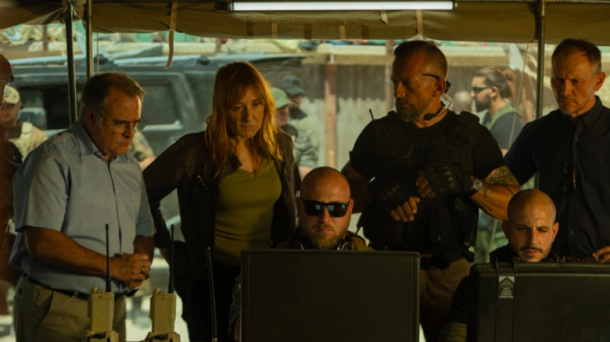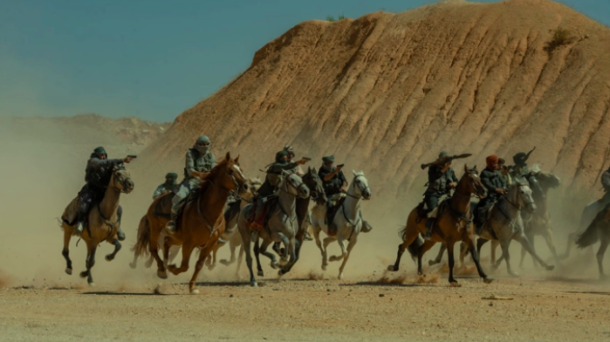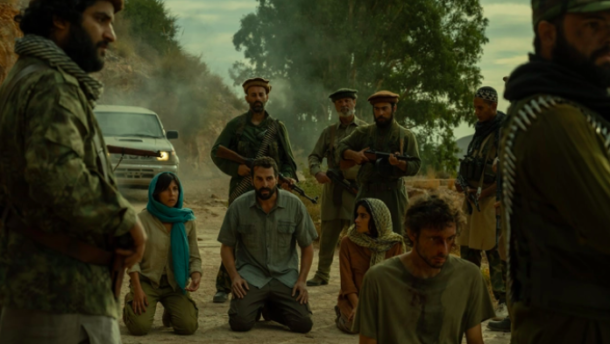Nathalie Poza’s unit is headed stateside…
Germany’s Beta has licensed Spanish special ops thriller La Unidad – Kabul, starring the 51-year-old Spanish actress, to Max for the U.S., including the third installment.
 One of Movistar Plus+’s longest running franchises, the hird season of La Unidad, features six episodes that deliver an engrossing and sometimes shocking take on the 2021 Fall of Kabul.
One of Movistar Plus+’s longest running franchises, the hird season of La Unidad, features six episodes that deliver an engrossing and sometimes shocking take on the 2021 Fall of Kabul.
With the purchase, all 18 episodes of Spanish series La Unidad are now available to stream on Max in the U.S.
 Beta has previously sold the thriller, spangled by action scenes and haunting in its sudden deaths, to 50 territories including France, Latin America, Finland, Sweden, Norway, Denmark, and Australia.
Beta has previously sold the thriller, spangled by action scenes and haunting in its sudden deaths, to 50 territories including France, Latin America, Finland, Sweden, Norway, Denmark, and Australia.
Produced by Spanish pay TV/VOD service Movistar Plus+, with Buendía Estudios, and first aired in May 2020 in a Movistar Plus+ drive for scale, propulsive action and broader audiences, La Unidad – Kabul reprises the characters of spacial ops unit head Carla (Poza), the feisty Miriam (Marian Alvarez) and agent Marcos (Argentine Michel Noher).
 Miriam and Marcos are dispatched to Kabul and then northern Afghanistan to talk to an arms-trafficking informant. A supposedly routine mission goes mortally awry as Kabul falls to the Taliban far quicker than everyone anticipates.
Miriam and Marcos are dispatched to Kabul and then northern Afghanistan to talk to an arms-trafficking informant. A supposedly routine mission goes mortally awry as Kabul falls to the Taliban far quicker than everyone anticipates.
Created by Dani de la Torre and screenwriter Alberto Marini, who teamed on 2015 Venice hit Retribution, La Unidad stands apart from its drive for realism, whether the not-out-of-the-ordinary private lives of the members of a Spanish anti-terrorist special ops police unit in Season 1 or in La Unidad – Kabul the true-to-events take on the chaos of the Fall of Kabul, and the dramatic change that this meant for its inhabitants, most particularly women.
The first two seasons were set largely in Europe. Shot over 10 weeks in Madrid, Almería and Pakistan, La Unidad – Kabul largely unspools in Afghanistan in an attempt to portray the origins of terrorism, De la Torre said when Episode 1 world premiered at March’s Malaga Film Festival.
“It’s very important to know where problems come from in order to solve them. Likewise, it’s important to look at how the Taliban took power, how they are violating the rights of people in Afghanistan, particularly women,” De la Torre told Variety.
The U.S.’ 20-year occupation allowed Western corporations to exploit Afghanistan, from pharmaceutical companies harvesting opium to mining companies taking valuable minerals, De la Torre argued. “When they are interested, they are there. When they lose interest, they leave,” he added.
An international coalition led by the U.S. and U.K. toppled the Taliban in December 2001 to establish democracy and human rights in Afghanistan. In the travails of Houda, a woman doctor at a hospital at Kabul and her basket-playing daughter, La Unidad – Kabul shows how progress on women’s rights proved profoundly frail.
